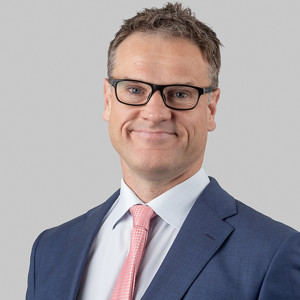
James Campbell
Partner | Legal
Jersey

James Campbell
Partner
Jersey
No Content Set
Exception:
Website.Models.ViewModels.Components.General.Banners.BannerComponentVm
The “A” Employee Shares Trust (the “Trust”) was established under English law on 21 March 2000 as an employee benefit trust. The Trust was administered in Jersey by Equity Trust (Jersey) Limited as trustee (the “Trustee”). Shares in the founder of the Trust the (“Founder”) were contributed as Trust assets.
The Founder did not have any employees. However it had a trading subsidiary (the “Subsidiary”) which did and shortly after the creation of the Trust, the Subsidiary merged with an American company (the “American Company”) the majority of whose shares were held in the Trust. As a result of the merger, the Subsidiary ceased to be a subsidiary of the Founder and became a subsidiary of the American Company. In or around May 2000 therefore, the position was that the Founder had no employees and ceased to have a subsidiary with employees.
In 2003, shares in the American Company were sold and out of the proceeds received into the Trust, five sub trusts were created for families of the principals behind the Founder and persons who were employees of the original Subsidiary.
In 2007, as a result of an attempt to freeze assets in the Trust as part of English divorce proceedings, the Trustee sought advice and concerns arose that the Trust may not have had ascertainable beneficiaries from early on. The Trustee obtained further advice from an English QC and in his opinion whilst the Trust was initially valid, it subsequently failed for want of beneficiaries in or around May 2000, as a result of the fact that at that time the Founder had no employees and ceased to have a subsidiary with employees. Counsel’s opinion was that there was a resulting trust in favour of each of the donors to the Trust and therefore the subsequent declarations purportedly creating sub trusts were invalid.
The beneficial class of the Trust was defined as follows:
“The present, past and future employees from time to time of the Founder and its subsidiaries…”
One of the main issues was how the definition of the “Beneficiaries” should be interpreted, in particular the reference to “the Founder and its subsidiaries”. It was argued that whilst the Founder was likely to have intended that employees of its future subsidiaries should be included within the beneficial class, it seemed unlikely that it intended employees of former subsidiaries to also be beneficiaries. It was therefore contended that once a subsidiary ceases to be a subsidiary of a particular company, its past present and future employees probably fell outside the definition of the beneficial class.
It was noted that the definition of “Beneficiaries” included reference to “future employees”. However, it was contended that for a trust to exist, there must be a beneficiary with locus standi to have the trust enforced at all times. On the facts, there was currently no such beneficiary nor had there not been for some time. The fact there may be such a person in the future, was insufficient.
Counsel was also of the opinion that based on the trust deed, there was no intention on the part of the Founder or any other person who contributed assets to the Trust, that they had abandoned their beneficial interest in such property, even if the Trust failed. Indeed it was noted that the terms of the Trust specifically envisaged resulting trusts being created in certain circumstances.
In light of the above, Counsel concluded that the Trustee had been holding the assets on resulting trusts for the donors to the Trust since around May 2000. Further, as the sub trusts had been created subsequent to May 2000, they were invalid, since the Trustee had no power to make such appointments, as the appointments had not been made at the direction of the persons for whom the Trustee held the assets on resulting trust.
Applying English law, the Court held that the Trust had failed for want of beneficiaries in or around May 2000 and that the sub trusts declared subsequently had at all times been invalid.
The assets of the Trust and the sub trusts were ordered to be held to order of the Court pending determination of how those assets should be divided as between the donors thereof and any claims which the beneficiaries of the resulting trusts may have against the assets.
This case is notable because it concerns an employee benefit trust and judgments in respect of such cases in offshore jurisdictions are rare. As regards the legal principles, the case affirms the absolutely fundamental requirements that there be ascertainable beneficiaries of a trust at all times.

James Campbell
Partner | Legal
Jersey

James Campbell
Partner
Jersey

Josephine Howe
Partner | Legal
Jersey

Josephine Howe
Partner
Jersey
Ogier is a professional services firm with the knowledge and expertise to handle the most demanding and complex transactions and provide expert, efficient and cost-effective services to all our clients. We regularly win awards for the quality of our client service, our work and our people.
This client briefing has been prepared for clients and professional associates of Ogier. The information and expressions of opinion which it contains are not intended to be a comprehensive study or to provide legal advice and should not be treated as a substitute for specific advice concerning individual situations.
Regulatory information can be found under Legal Notice
Sign up to receive updates and newsletters from us.
Sign up
No Content Set
Exception:
Website.Models.ViewModels.Blocks.SiteBlocks.CookiePolicySiteBlockVm